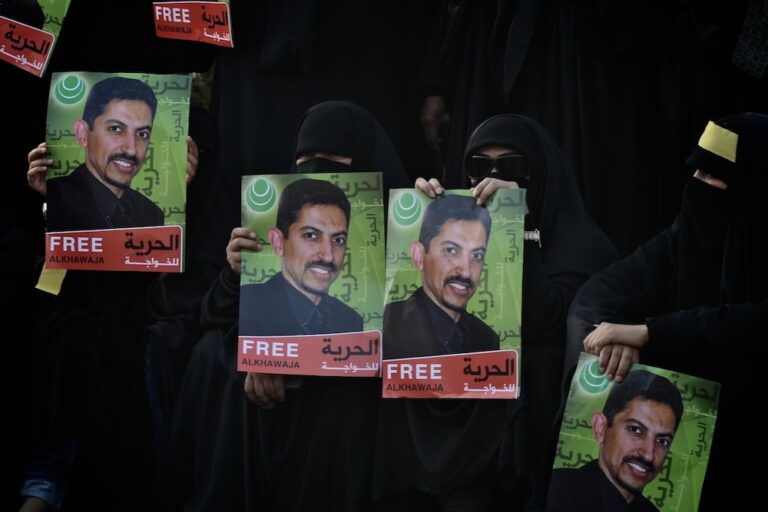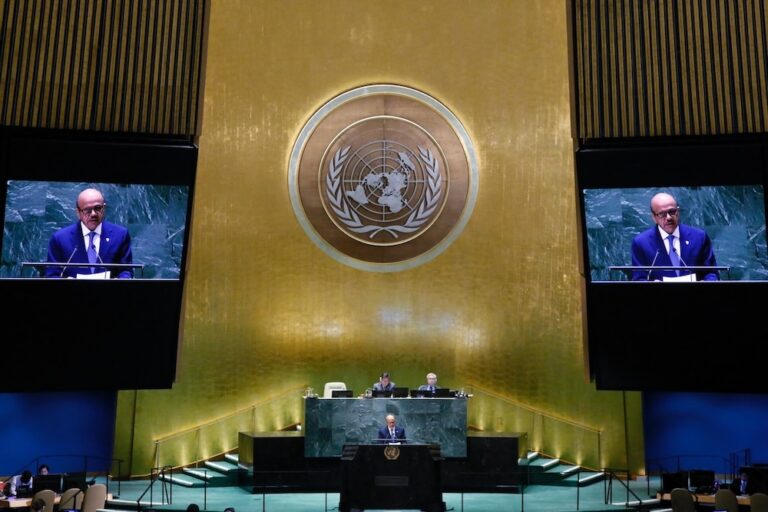(BCHR/IFEX) – The Bahraini authorities have widened their campaign against all Internet outlets, inside and outside Bahrain, which covers all aspects of public affairs in the country. The lastest victims of the site-blocking campaign, led by Mai Al-Khalifa, the Minister of Culture and Information, are http://www.aafaq.org , a Washington-based news site, and http://www.Bahrain-eve.blogspot.com , the […]
(BCHR/IFEX) – The Bahraini authorities have widened their campaign against all Internet outlets, inside and outside Bahrain, which covers all aspects of public affairs in the country. The lastest victims of the site-blocking campaign, led by Mai Al-Khalifa, the Minister of Culture and Information, are http://www.aafaq.org , a Washington-based news site, and http://www.Bahrain-eve.blogspot.com , the blog of female activist Ghada Jamsheer. The authorities have also blocked the alerts site http://www.bahrainblogs.org that lists reports about any posting or updates made by bloggers in Bahrain and includes alerts from the BCHR site: http://www.bahrainrights.org . All sites were blocked on the morning of 21 April 2009.
The Aafaq site is a webpage of news, views and reports covering many countries. It is managed by an independent US-based owner and focuses on political and other developments in Bahrain and the Arab region. Bahrain-eve, on the other hand, is a personal blog owned by Jamsheer, who is well-known for her views on women and other human rights issues.
The campaign is managed by a special branch reporting directly to the minister, who explicitly stated in her resolution that the decision to impose or lift a block on a particular site is under her discretion. This contradicts the cause of the campaign which is said to focus on pornography-related sites. Since its launch on January, the attack on Internet sites has included personal blogs, public forums, NGOs’ and human rights webpages, political, religious, cultural, and other sites which reflect dissident views, news and reports on public issues.
As per a report by a project launched by the Berkman Center for Internet and Society at Harvard University, up to this moment there are “598 reports of inaccessible sites in Bahrain, 159 of which are unique”. The enormity of the figure is a result of the spectrum of sites blocked based on certain tags and keywords which include the word “proxy”, something which users have used to bypass the block.
Nabeel Rajab, president of BCHR, responded to this latest move: “One can see that the State is going hysterical and (is not acting rationally) in the way it is treating dissident views and issues of relation to public affairs”. He added: “They want to control every in and out byte of information. We all know this is impossible and the state advisors should voice that this is a lost war against freedom of expression and exchange of information in the high tech world we are living in”.


